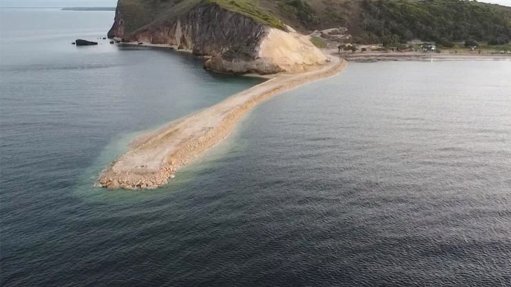Richard John Budge
RICHARD Budge, the businessman who was crowned “King Coal” after he successfully spear-headed the purchase of State-owned British Coal’s mining assets in England when the industry was privatised over 20 years ago, died today (Monday) at the age of 69.
Budge was born in 1947, the year the UK coal industry, with almost a thousand deep mines and a million employees, was nationalised and became the National Coal Board. Almost half a century later when the “ultimate privatisation” was completed, there were just 19 deep mines in production – and Budge’s Doncaster-based RJB Mining company bought all but two of them.
The three English coalfield packages embracing 17 deep mines, 30 surface mines, over 400 million tonnes of reserves and nearly 50,000 acres of land, cost RJB Mining, of which Budge was Chief Executive, £815 million. Some £700 million was paid to the government on completion on December 30, 1994, and the remaining bank acquisition debt was paid off within two years.
Lincolnshire-born, he went to Boston Grammar school and then on to Manchester University to study Fine Arts. He left to join the Retford-based company AF Budge owned by his late brother Tony, which was involved in civil engineering projects, constructing major motorway interchanges and extracting coal from seams laying close to the surface.
In 1992, he bought the Opencast Coal and Plant Division from the family business. He bought a small deep mine in Northumberland, contracted for surface mine sites, and as the government prepared for the sale of what former Energy Secretary Cecil Parkinson had described as the “ultimate privatisation”, rescued three deep mines which British Coal had decided would play no part in the privatisation process. These “lease and licence” mines went on to produce almost 20 million tonnes of coal for power stations and industry before they closed.
The mining assets of British Coal were sold off in five packages. The core three in England bought by RJB Mining transformed overnight what was a relatively small company to the biggest independently owned coal production business in Europe.
Budge and his team took on the challenge of changing the culture of a business where more than 10,000 employees had only previously had one employer – British Coal - which had closed more than 100 collieries in the decade from the strike ending to privatisation being completed.
Armed with contracts to supply power stations in the Midlands, Yorkshire and the North East at guaranteed prices for three years, Budge launched a personal hearts-and-minds campaign, convincing employees in an industry where tribal loyalties were rock solid, that he was in it for the long-term. There was investment in both deep and surface mines, new machinery accessing millions of tonnes of reserves and a determination to maintain and improve health and safety standards.
A slump in energy prices in the late 90s as coal supply contracts were being renegotiated dampened the appetite for the investment needed in an industry typically facing a four/five year pay-back and Budge quit as the company’s Chief Executive in the summer of 2001.
He invested his energies and much of his personal wealth in securing a future for Hatfield, a colliery near Doncaster with substantial reserves and the potential to pioneer carbon capture technology seen as an environmental life-line for coal. He secured foreign investment, but little was forthcoming from the EU or the UK government which by then was promoting “renewable” energies as the way forward.
Budge served in both regional and national capacities as Chairman and President of the Coal Trade Benevolent Association; provided support and was Chairman of the Coal Industry Social Welfare Organisation and many organisations and activities popular in traditional mining communities. He was a trustee of the National Coal Mining Museum for England, the former Caphouse colliery at Wakefield, and for many years, with Nottinghamshire Enterprises, a job creation agency helping regenerate one of the coalfields hit hard by pit closures.
He was the driving force behind the foundation of the Confederation of UK Coal Producers, a campaign group which for the first time gave independent producers a voice in the corridors of power. It had many successes – but failed in its biggest objective: to secure government and EU investment in clean coal carbon capture and storage technology that would have enabled Britain’s most plentiful fuel to be utilised in a more environmentally acceptable way. The decision sounded the death knell for the British coal industry, and the country’s last deep mine, once owned and developed by Budge’s RJB Mining, ceased production at the end of last year.
Richard Budge was a man who lived life in the fast lane, both at work and at play. As a young man his passion for motor racing was put into practice behind the wheel of several high-powered Chevron historic sports cars, winning races and championships and being crowned Thundersports Gold Cup winner at Oulton Park in 1983.
Yet for a man with such a high profile, Budge treasured his privacy, the love of wife Ros, their sons Grant and Kurt and their five grandchildren.
Comments
Press Office
Announcements
What's On
Subscribe to improve your user experience...
Option 1 (equivalent of R125 a month):
Receive a weekly copy of Creamer Media's Engineering News & Mining Weekly magazine
(print copy for those in South Africa and e-magazine for those outside of South Africa)
Receive daily email newsletters
Access to full search results
Access archive of magazine back copies
Access to Projects in Progress
Access to ONE Research Report of your choice in PDF format
Option 2 (equivalent of R375 a month):
All benefits from Option 1
PLUS
Access to Creamer Media's Research Channel Africa for ALL Research Reports, in PDF format, on various industrial and mining sectors
including Electricity; Water; Energy Transition; Hydrogen; Roads, Rail and Ports; Coal; Gold; Platinum; Battery Metals; etc.
Already a subscriber?
Forgotten your password?
Receive weekly copy of Creamer Media's Engineering News & Mining Weekly magazine (print copy for those in South Africa and e-magazine for those outside of South Africa)
➕
Recieve daily email newsletters
➕
Access to full search results
➕
Access archive of magazine back copies
➕
Access to Projects in Progress
➕
Access to ONE Research Report of your choice in PDF format
RESEARCH CHANNEL AFRICA
R4500 (equivalent of R375 a month)
SUBSCRIBEAll benefits from Option 1
➕
Access to Creamer Media's Research Channel Africa for ALL Research Reports on various industrial and mining sectors, in PDF format, including on:
Electricity
➕
Water
➕
Energy Transition
➕
Hydrogen
➕
Roads, Rail and Ports
➕
Coal
➕
Gold
➕
Platinum
➕
Battery Metals
➕
etc.
Receive all benefits from Option 1 or Option 2 delivered to numerous people at your company
➕
Multiple User names and Passwords for simultaneous log-ins
➕
Intranet integration access to all in your organisation


















